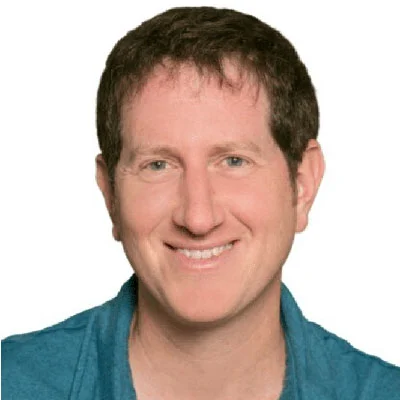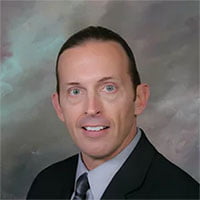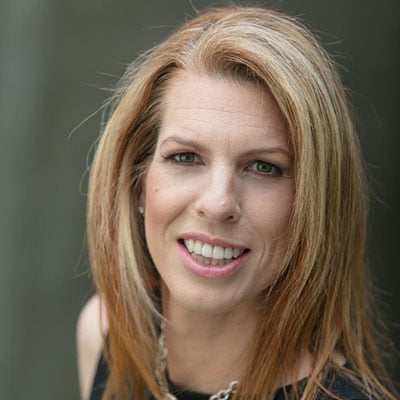[00:00:00] Kevin Stafford: Hello everyone and welcome to another episode of the Conversations with Gojus podcast. I’m your host Kevin and I, you’ve heard me say this often because I get to chitchat with my guests before I hit record and it’s always a delight. Capital D capital every letter in the word delight to make, remake the acquaintance of Kelly Campbell.
We’ve been chatting for 15 minutes already. It’s both felt like 15 seconds and 15 hours. I could do this all day, but let’s jump into the episode because Kelly has a book to promote, which I’m really excited to share with you. So let me reacquaint you with Kelly. Kelly is a trauma informed conscious leadership coach, helping creative and technology leaders transform both their lives and their agencies.
She’s the co founder of Consciousness Leaders, a global collective of experts helping organizations create positive and lasting change. Oh yeah, sure, go ahead. This bio might be a little bit old, because I think this is the one I read like a year and a half ago, so update me. Totally old, yes. Oh, okay. You know what, Kelly?
Thanks for being on the show. Reintroduce yourself to the audience, and to me, apparently.
[00:01:03] Kelly Campbell: So I am a certified trauma informed leadership coach. I also do conscious leadership consulting. I’m working with leaders across all industries. My background is in marketing and advertising. So that’s typically where a lot of the clients will come from that particular vertical.
But I’m also working with executive directors and organizational directors from nonprofits and government organizations and larger corporations as well. So all of that sort of culminates nicely. And I also am the founder of Consciousness Leaders, which is a speakers agency. It’s actually the world’s most diverse and equitable speakers agency.
So keynote speaking, owning that agency. trauma informed leadership coaching. I’m doing a bunch of stuff and I wrote a
[00:01:48] Kevin Stafford: book. And you wrote a book. Yeah you’re never at a lack for things to, to promote or to talk about. But today, and we were talking about this earlier because we could have gotten any number of dozens of different directions for this conversation, but You do have a book coming out very soon.
We’re recording this in mid December. This will probably post later on early in 2024. So the book is coming out in April of 2024, I believe, correct? Talk about Heal to Lead. Give me the elevator book jacket pitch.
[00:02:13] Kelly Campbell: Book jacket pitch has not been finalized, but it’s much better with the texture from me.
So the book is Heal to Lead, revolutionizing leadership through trauma healing. And it was really important to me that we got the words trauma and leadership into the actual title and subtitle. Because really what it’s about is correlating your childhood trauma with the ways in which you’re showing up as a leader and how that actually impacts not only you as a human.
You as a partner, you as an employer, you as whatever leadership role you have in your life, your family, your place of employment, or, organization. It’s so impactful and it’s so at the root of every single action we take every thought we think. Everything that comes out of our mouths, right?
There’s so many trauma responses and things that are running as a program behind the scenes that we don’t, we’re not fully aware of. Sometimes they’re subconscious. Sometimes they’re completely unconscious. But the ways in which we are impacting other people are really our responsibility. So that’s what I posit in the book is that it is our responsibility to really take ownership of.
The trauma that we’ve experienced, it was not our fault, but it’s still our responsibility to heal it or, as I say, to integrate it, because my belief, and this might just be my own belief, I don’t think that it’s possible to be healed, ED, past tense, um, from your trauma. I think you can integrate it, and I think that the ways in which it keeps showing up in your life, Give you the opportunities to respond to it differently to the point where they become like nothing, right?
But it doesn’t mean that you’re healed because there are always going to be things that come at you externally. You’re going to have to encounter and there might be a little blip inside of your body a little something that tells you it’s still there, you just respond in a much more secure way or in a much more palatable way that doesn’t cause harm to other people or, make other people feel unsafe around you or distrust you or, whatever the case may be.
So that’s what
[00:04:27] Kevin Stafford: the book is about. I Love that. That healing is integration and not erasure. I think too many people think of healing as, and then, and now that’s done. And it’s gone as if it never existed. And it’s it’s, um, not the opposite, but it’s something wildly different than we’re used to thinking of it as.
Even though it’s when it’s done well, it happens naturally. It just integrates. It becomes a part of your story that you have, and again, another distinction I love that you made. Not have taken the blame for, but have taken responsibility for. And that’s, again, subtle shift that changes everything about the way that we go about our lives.
The way we show up as ourselves for the people that we work with, work for, live with, live for, love with, love for. Got it. Yeah,
[00:05:13] Kelly Campbell: that’s really well said. Just to add a little bit more, if someone does say, Oh, I’ve been doing my healing work and this core wound that I had, some mother wound or father wound or fear of rejection or fear of abandonment, fear of betrayal, humiliation, all of these things that can get our story of who we are, if they say, Oh, I’ve done my work.
And I’m healed from that. It’s over. It’s done. That’s in the past. That’s behind me. That’s my number one marker to distrust that person. It doesn’t mean they’re a bad person, but I can’t trust you if you believe that you’re never going to encounter that again. If you don’t show up as a leader, particularly with through, through a lens and looking at it through a lens of curiosity.
As for yourself, but for other people as well, and what’s going on with them, that’s what trauma informed
[00:06:02] Kevin Stafford: leadership is all about. Yeah it’s, what’s the line from the great Gatsby, the past isn’t over, it isn’t even past, always coming back to me. There’s something.
An analogy that I’ve I stumbled upon just years ago that keeps like keeps coming back to me as I like go through my life and just do work for myself and watch other people work on themselves. And you hinted at it with this sort of underlying code that’s running in the background of your life.
And I have often thought of myself as just this I inherited this house and the wiring is not faulty, but it’s just oh boy, there are, there’s the circuits. There’s wires cross. I look down. It’s I’m looking at the fuse box and there’s just wires sticking out everywhere. I’m just like, so power is going over to this room, but not to that one.
And the basement’s unfinished. And I’m just like, I just, I guess I just have to become like a contractor and I have to learn how to be like an emotional and intellectual electrician. I’ve got to I’ve got to do this rewiring of my circuitry. And that’s just an ongoing project. It’s a labor of love because I have this beautiful home, aka me, my existence, myself, and it’s just, I just inherited, a bunch of stuff that’s just it works.
Some of it works brilliantly. Some of it is Works counter to the other things, it was all these crossed wires and just stuffed. I was like I guess I better get to work. And so at various points in my life, when people see me, they come into my house and there are walls completely missing and like exposed wires.
It’s yeah, I’m doing a lot of personal work, which, you can shorthand in different ways. But I just, I have that analogy in my head of just a house under. Under remodeling, because I inherited it. It’s beautiful. I live here. I wouldn’t have it in either way.
And I’m going to be working on this house for the rest of my life.
[00:07:34] Kelly Campbell: So really interesting. My father’s name is Kevin also, and he’s an electrician, so he’s going to love. I do actually talk about him quite a bit in the book. That’s my father. He had a big influence on me. But Debbie Ford, who was I would say one of the people that we look to in terms of shadow work, right?
In her childhood, shadow work. She has this great analogy, very similar to what you just said, which is we’re all born into this multi, multi room castle, right? As all of these different stories other people’s trauma gets inherited and, pushed upon us. All of a sudden, each of the rooms inside of this castle get closed, get locked, get, we’re not, we don’t have access to them anymore until we are somewhere in our forties or so.
And we’re like, wow this castle at once was this multi room, beautiful, dwelling. And now I’m in like a two bedroom apartment. What happened? I lost all access to all these other things, right? Because the doors just keep getting closed around us. And so it’s our job to, your analogy is to rewire, I love that word also to be a locksmith.
So yeah, you’ve got to be a contractor and take responsibility for unlocking those rooms because what becomes possible for you if you have access to all of this expansiveness inside of yourself and you, I want to go back to something you said earlier, which was you’re doing it for yourself. You said it’s a labor of love.
I actually challenged that notion in a really loving way, because it’s not just the labor of love. You’re not just doing it for yourself. It’s a labor of altruism because you’re doing it for so many other people. You’re doing it for your spouse or partner. You’re doing it for your kids. If you have them, the other people who are in your sphere, friends, clients, you name it, you’re doing this work to benefit everyone else.
So it really, to me is a labor of
[00:09:24] Kevin Stafford: altruism. Yeah it’s I even like sometimes will think about just the cashier whose head you bit off because you were having a bad morning and but they didn’t deserve that. They didn’t deserve that they’re catching strays they don’t deserve that at all and then the contrast of that where it’s just the smile, the unexpected smile, or the just the exchange where you’re like you look somebody in the eye and you share a moment with them, complete stranger may never see them ever again, but because you.
Are doing the work are engaged in those acts and you’re aware of the way in which you show up in the world you get to choose consciously how to show up how to manifest and instead of just you know firing off strays and just radiating negativity into the world here there and everywhere you actually get to get your hands on it and be a little more intentional about it and that’s just that by itself that one aspect of it by itself is worth all the work and there’s so much more to it so many more benefits it’s just yeah you it’s a, the tree that keeps on giving fruit.
[00:10:19] Kelly Campbell: Yeah. That’s it. Trauma integration. The benefit of it is it gives you choice points, right? Like you have access to just one of the doors, right? To those rooms, you have choice in the matter of how you show up, how you greet people, how you interact, how you exchange, whether you see someone or not, whether you take the time.
Yeah it’s profound how different your life is once you engage in this work and you can’t really ever look back. I think that’s a beautiful
[00:10:47] Kevin Stafford: part of it. Yeah, it’s it has a momentum is a word that comes to mind. Just because of the way that it’s inelegantly speaks to what you’re talking about and the way it’s just, once you really do truly begin the work, it’s you have to stay engaged, you can’t just be like, okay, cool, it’s not another, it’s not a different version of oh, I’m done, the train’s just going to keep on going down the tracks forever, I won’t have to shovel any more coal into the engine, but There’s just such a powerful momentum to it that once you do get it going, there’s so much weight behind it, and you find so much energy in other people who are also engaged in that work, that, oh, it’s exponential energy from just finding somebody who is engaged in the same way, and They’re on their own journey and but they’re like you’re able to share those little touch points those little connections and it’s just, oh, it just gives you a world of motivation if you were lacking it energy if you were feeling down it’s just and that’s, again, why it’s so important to get to that place where you could share it, because, oh, then you’ve just you’ve unlocked all the energy that you’ll need
[00:11:44] Kelly Campbell: 100 percent you’re really right and that speaks back to the expansiveness that we were talking about before, the more you expand that capacity, the more you To give and receive love to see people to engage in conscious communication to love yourself, you’re just going to show up differently in the world.
And especially as a leader, you have no idea the impact that you’re making on the people’s families who are your employees or team members and they go home and there they can show up differently. So this ripple effect is cliche as it sounds. It’s real. And then reverberate that out into our communities.
I really feel like, I’ve said this part of my bio in the book and on my website. My vision, really, and I’m so passionate about this, is that, I would love to empower half of humanity to heal its childhood trauma. Because from there, I think we can reimagine and rebuild the world that we actually want to live in versus
[00:12:36] Kevin Stafford: the one we are currently living in.
I think that is the appropriate goal. I know that sounds like a big Like an unattainable number, as the numbers of people in the world and things that are happening as things We only have to get to 4 million,
[00:12:48] Kelly Campbell: so I think we’re
[00:12:49] Kevin Stafford: Yeah, and it’s honestly it’s not just a, it’s not just a stretch goal, that it’s attainable for precisely the reasons that you’re outlining, is that, that radiating effect, and it’s like how Most of the people you’ve had the best, most profound effect on, you’ll never know.
Because it’ll be because you led someone, who led someone, who loved someone, who shared with someone, and you’ll be how many degrees of Kevin Bacon can you get away? You’re just radiating this positive change in the tiniest little increments, and you’ll never know. But you can know. You’ll never know specifically.
But you can know that you are having an effect if you understand this kind of Trauma integration and leadership development and just doing the work. Or six degrees of Kevin Stafford as it were. Six degrees of Kevin Stafford. Let’s stick with Kevin Bacon. I think he’s got more connections than I do.
I can, as I said before I hit record, I’ll say it again now. I could do this with you all day. I think this is exciting stuff. This is important stuff. And I am, I’m really stoked about your book. So before I let you go. Where can people go to find out more about the book itself? Where can people go to pre order the book?
Where can people go to find other podcast episodes that you’re going to be on promoting the book and talking about it like this even at greater length? Where can people go to find the articles you’re going to write about the book? Where can people go to find out more? So
[00:14:09] Kelly Campbell: everything that you just mentioned as options is available on my website, which is klcampbell.
com. I also have a Substack community for people who are really excited about this. It’s brand new. It’s klcampbell. substack. com. And if you can’t remember that or, it’s not linked in the show notes the name of it is actually what I’m calling the new TLC, Trauma, Leadership, and Consciousness.
[00:14:37] Kevin Stafford: Oh, I, that’s, uh, with someone in the background, the marketing, I’m like that’s that’s tickled my, my, my marketer brain. I was like, Ooh, that’s good. Ooh, that’s good. So I like that a lot. TLC. Underwhelming care is
[00:14:46] Kelly Campbell: great, but that’s not what we need. We need.
[00:14:48] Kevin Stafford: Let’s get a little more. Let’s get a little more specific.
Let’s use more precise words. Very specific. Thank you, Kelly, so much. This has been great. I’m like, I’m I was already fairly excited about the book. And like I said, I still remembered our first podcast episode from almost two years ago. I am now beside myself with excitement. I’m almost like a little shaky and it’s maybe I haven’t had my second coffee yet, but I’m just like, I am so excited to read this book.
I’m so excited for all the work you’re doing. Let’s talk again soon. This has been great. Thank you. Thank you.
[00:15:17] Kelly Campbell: So yeah, it’s available for pre order now and it’ll be out officially
[00:15:21] Kevin Stafford: April 16th, right after tax day. So pay your taxes. And then let’s get to work. To the audience, you know what to do next.
If you’re even just one tiniest percent as excited as I am about this book and about Kelly, go to her website. You can find her on LinkedIn, all the socials, she’s everywhere. The website’s probably the one stop shop, it’s probably the hub of the wheel, so go there first, do what you do best, and thank you so much for sharing time with us today.
We’ll get to talk to you again very soon.













